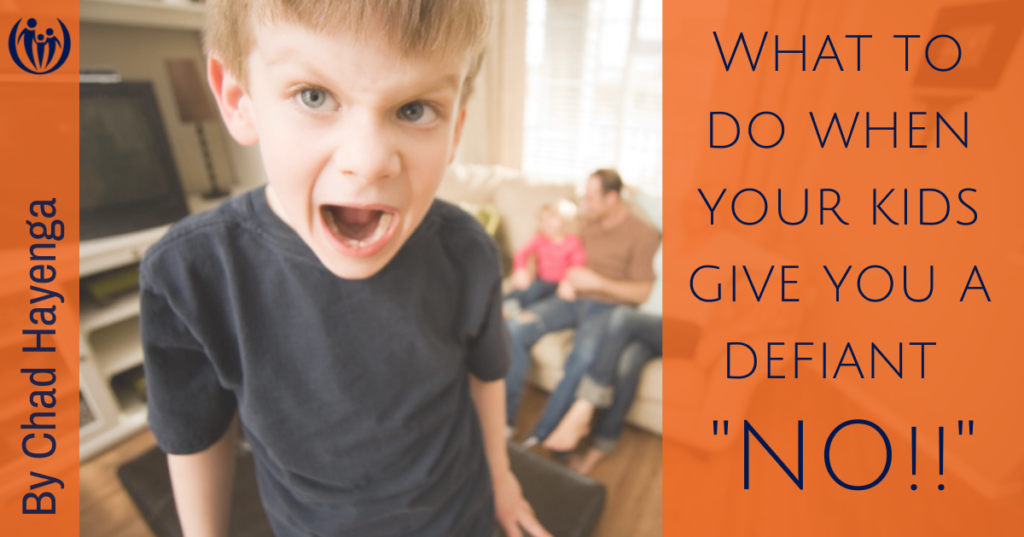What to do when your kids give you a defiant “NO”

When kids say “No!” parents tend to react rather than respond. Reacting tends to lead to unconstructive power struggles that follow this basic pattern:
Child: “No!”
Parent: “Yes!”
Child: “No!”
Parent: “Yes or else!”
Child: “I don’t care!”
Parent: “Well I’ll show you who’s boss!”
Now parent and child are in a power struggle, and when this happens no one really wins in the long run. Even if kids eventually give in to their parents’ “yes,” they feel defeated. They will likely seek power in unhealthy ways later, because they have a God-given need to have a sense of power over their lives. A lack of healthy power can lead to depression, passivity, resentment, or even rage.
As parents, one of our jobs is to help our kids find healthy outlets for their need for power. We do this by thoughtfully responding to their “No’s.”
Like this:
- Stay calm. Don’t reward your child by giving a big, emotional response. Ask for God’s wisdom and peace in the situation.
- See the child’s defiant “no” as a potentially good thing. Your child is standing up for what’s important to them, becoming independent, and even showing some courage! Picture him saying “No!” to the shady kid on the playground.
- Understand your child. Sincerely empathize with your child’s struggle. We all know what it’s like to feel angry and defiant.
- Provide other outlets for the child to have power. What choices can you provide for your child in this situation? How would they like to solve this impasse?
- Help your child understand the options. Gently let the child know what will happen if they choose to remain defiant and what will happen if they choose to follow through with what’s been asked of them.
Here’s how it might play out:
Parent: It’s time to get ready to go!
Child: “No!”
Parent: “Wow, you’re an independent little guy, aren’t you. I know it’s hard to stop playing and get ready to go – you love that toy! If you keep playing with it, I can pick you up and carry you out, and this toy will take a break for a day. Or you can quick get ready to go and play with it as soon as you get back. I’m gonna give you a minute to decide. Either way – I love ya!”
The extra few moments to respond thoughtfully will often short-circuit extended power struggles and end up saving stress and time. More importantly, this approach empowers kids to learn to make wise choices, and grow in healthy independence.
Want to learn more about these concepts? Download our one hour recording of a Discipline That Connects workshop

